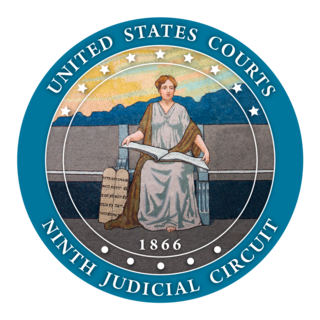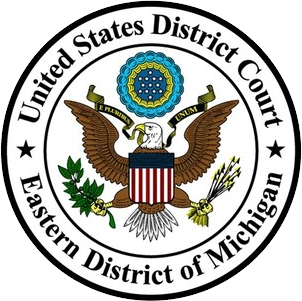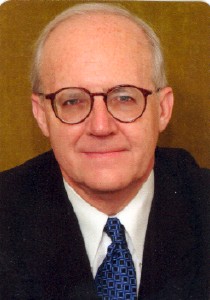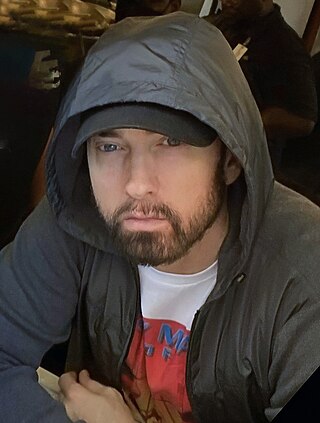Related Research Articles

Macomb County is a county on the eastern shore of the U.S. state of Michigan. It is part of the Detroit metropolitan area, bordering Detroit to the north and containing many of its northern suburbs. Its seat of government is Mt. Clemens, and its largest community is Warren. As of the 2020 census, the county had a population of 881,217, making it the third-most populous county in the state, behind neighboring Wayne and Oakland. Macomb County contains 27 cities, townships and villages, including three of the ten most-populous municipalities in Michigan. Most of this population is concentrated south of Hall Road (M-59), one of the county's main thoroughfares.

The Slim Shady LP is the second studio album by American rapper Eminem. It was released through Aftermath Entertainment, WEB Entertainment, and Interscope Records on February 23, 1999. Recorded in Ferndale, Michigan, following Eminem's recruitment by Dr. Dre and Jimmy Iovine, the album features production from Eminem himself, alongside Dr. Dre and the Bass Brothers. Featuring West Coast hip-hop, G-funk, and horrorcore musical styles, the majority of The Slim Shady LP's lyrical content was written from the perspective of Eminem's alter ego, named Slim Shady. The alter ego was introduced on his 1997 extended play Slim Shady EP, and concluded on his 2024 studio album The Death of Slim Shady . The album contains cartoonish depictions of violence and heavy use of profanity, which Eminem described as horror film-esque, in that it is solely for entertainment value. Although many of the lyrics on the album are considered to be satirical, Eminem also discusses his frustrations of living in poverty.

The United States Court of Appeals for the Ninth Circuit is the U.S. federal court of appeals that has appellate jurisdiction over the U.S. district courts for the following federal judicial districts:

Obie Trice III is an American rapper. He signed with fellow Detroit rapper Eminem's Shady Records, an imprint of Interscope Records in 2000 to release his first two albums, Cheers (2003) and Second Round's on Me (2006). Both peaked within the top ten of the Billboard 200, while the former was supported by the singles "Got Some Teeth" and the Dr. Dre-produced "The Set Up ". Upon leaving the label, Trice formed his own record label, Black Market Entertainment to release his following albums, Bottoms Up (2012), The Hangover (2015) and The Fifth (2019).

The United States Court of Appeals for the Sixth Circuit is a federal court with appellate jurisdiction over the district courts in the following districts:

The United States District Court for the Eastern District of Michigan is the federal district court with jurisdiction over the eastern half of the Lower Peninsula of the State of Michigan. The Court is based in Detroit, with courthouses also located in Ann Arbor, Bay City, Flint, and Port Huron. The United States Court of Appeals for the Sixth Circuit has appellate jurisdiction over the court.

Shira Ann Scheindlin is an American attorney and jurist who served as a United States district judge of the United States District Court for the Southern District of New York. She is currently of counsel at Boies Schiller Flexner LLP.

Danny Julian Boggs is an American lawyer and a senior United States circuit judge of the United States Court of Appeals for the Sixth Circuit. He was appointed to the court in 1986 and served as its chief judge from September 2003 to August 2009. Boggs was on the short list of President George W. Bush's candidates for the U.S. Supreme Court.
Richard Fred Suhrheinrich is a Senior United States circuit judge of the United States Court of Appeals for the Sixth Circuit serving in Lansing, Michigan He had been a United States district judge of the United States District Court for the Eastern District of Michigan.

Marshall Bruce Mathers III, known professionally as Eminem, is an American rapper, songwriter, and record producer. He is credited with popularizing hip-hop in Middle America and is widely regarded as one of the greatest rappers of all time. His success is considered to have broken racial barriers to the acceptance of white rappers in popular music. While much of his transgressive work during the late 1990s and early 2000s made him a controversial figure, he came to be a representation of popular angst of the American underclass and has influenced many musical artists. His most successful songs on the U.S. Billboard Hot 100 include "The Real Slim Shady", "Without Me", "Lose Yourself", "Not Afraid", "Love the Way You Lie", "The Monster", "Godzilla", and "Houdini".

The Michigan Court of Appeals is the intermediate-level appellate court of the state of Michigan. It was created by the Michigan Constitution of 1963, and commenced operations in 1965. Its opinions are reported both in an official publication of the State of Michigan, Michigan Appeals Reports, as well as the unofficial, privately published North Western Reporter, published by West. Appeals from this court's decisions go to the Michigan Supreme Court.

Raymond Michael Kethledge is a United States circuit judge of the United States Court of Appeals for the Sixth Circuit. He was appointed by President George W. Bush in 2008. Kethledge appeared on Donald Trump's list of potential Supreme Court of the United States nominees in 2016, and was described by press reports as a finalist in President Trump's nomination to replace Anthony Kennedy on the court.
James Leon Dennis is an American lawyer, jurist, and former politician serving as a senior United States circuit judge of the United States Court of Appeals for the Fifth Circuit, with chambers in New Orleans, Louisiana.
"Brain Damage" is a song by American rapper Eminem from his second studio album The Slim Shady LP (1999). It is about his experience with bullying as a child.

F.B.T. Productions, LLC, et al. v. Aftermath Records, et al. 621 F.3d 958 was a case in which the United States Court of Appeals for the Ninth Circuit dealt with how Federal Copyright Law applied to the sales and licensing contracts of music downloads and other downloadable copyrighted material. Specifically, the circuit court ruled that a licensing provision in the contract between F.B.T. Productions and Aftermath Records unambiguously applied to permanent downloads and mastertones offered through third party distributors. After reviewing the First Sale Doctrine and the nature of Aftermath's contracts with its distributors, the circuit court concluded that such downloads constituted a licensing of copyrights rather than a sale, causing Aftermath to pay higher royalties to F.B.T. under their agreement.
Alton Thomas Davis is an American prosecutor, jurist and former member of the Michigan Supreme Court.

Joan Louise Larsen is an American attorney serving as a United States circuit judge of the United States Court of Appeals for the Sixth Circuit. She previously was an associate justice of the Michigan Supreme Court from 2015 to 2017.
Peter v. NantKwest Inc., 589 U.S. ___ (2019), was a United States Supreme Court case from the October 2019 term.

Hala Yalda Jarbou is the chief United States district judge of the United States District Court for the Western District of Michigan. She is the first Chaldean federal judge.

Deborah Rae Nelson, also known as Debbie Mathers, was an American author who was the mother of Eminem, the American rapper. She was known for her troubled relationship with her son, who mentioned her in many of his songs, including "Cleanin' Out My Closet" (2002) and "Headlights" (2013). She also gained recognition for her autobiography My Son Marshall, My Son Eminem (2007), in which she shared her experiences and perspective on their family.
References
- 1 2 3 "COA Second District Judges". Michigan Courts. Archived from the original on 21 January 2014. Retrieved 11 October 2017.
- 1 2 Michigan Supreme Court Office of Public Information. "Michigan Court of Claims judges named" (PDF). Archived from the original (PDF) on 10 February 2017. Retrieved 11 October 2017.
- 1 2 Dansby, Andrew (October 20, 2003). "Judge Drops Eminem Rap". Rolling Stone. Retrieved August 12, 2015.